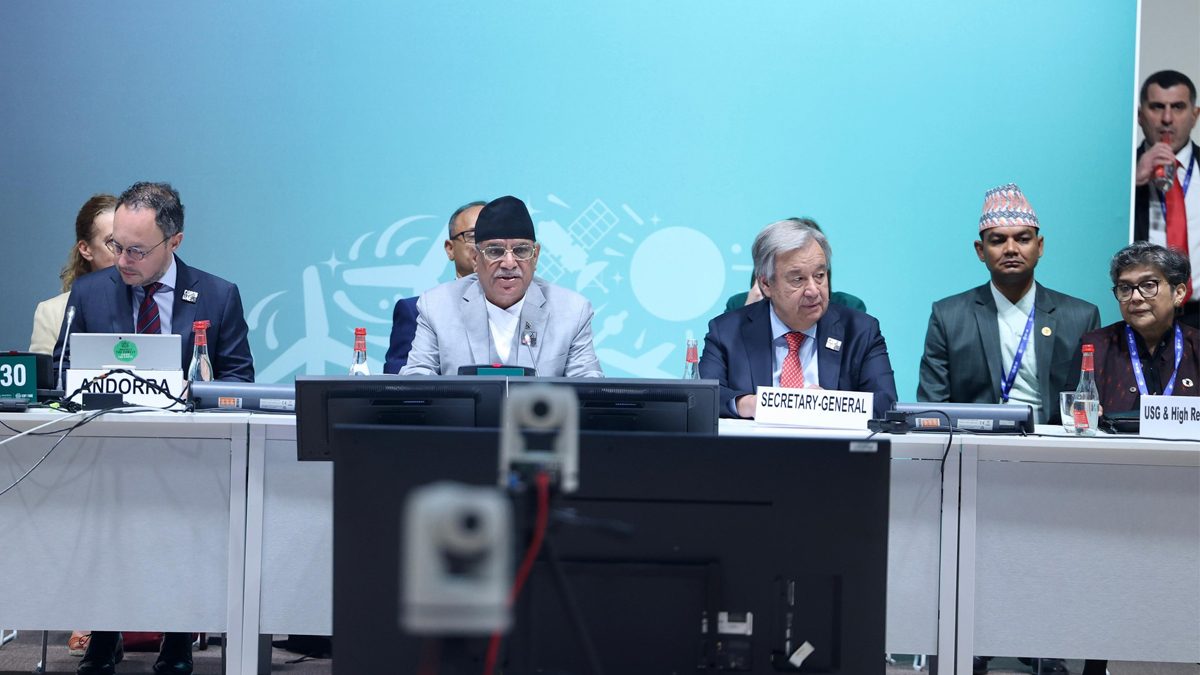
COP-28 Acknowledges Urgency of Mountain Agendas in Climate Change Mitigation
Kathmandu, December 16: The United Nations Conference on Climate Change (COP-28) has made history by incorporating longstanding mountain agendas into its decisions, recognizing the critical impact of climate change on mountainous regions. Held in Dubai, United Arab Emirates (UAE), from November 30 to December 12, the annual climate conference not only brought mountains to the forefront but also prioritized addressing their unique challenges.
Nepal, a nation profoundly affected by climate change in its mountainous terrain, has been consistently advocating for the inclusion of mountain agendas since COP-15 in Copenhagen in 2009. Despite fervent efforts in subsequent climate summits, tangible outcomes had remained elusive until COP-28.
In the inaugural ceremony of COP-28, UN Secretary-General Antonio Guterres, drawing inspiration from Nepal, highlighted the alarming impact of global warming, citing rapid iceberg melting trends. Guterres had personally visited Mount Everest and Annapurna Base Camps during his pre-conference visit to Nepal, a move that fueled Nepal’s commitment to elevating mountain-related concerns in the UN climate conference.
Prime Minister Pushpa Kamal Dahal ‘Prachanda’ played a pivotal role by hosting a high-level roundtable meeting during COP-28, marking the first time Nepal hosted and chaired a separate meeting within the UN conference on climate change. Dignitaries, including the Prime Minister of Andorra, the Kyrgyz Foreign Affairs Minister, and the Bhutanese State Secretary, addressed the meeting.
The outcomes document of COP-28, for the first time, included the effects of climate change in mountains, marking a significant achievement for Nepal. Minister for Forest and Environment Birendra Prasad Mahato expressed excitement over the inclusion of the mountain agenda, emphasizing its long-standing advocacy.
According to the United Nations Framework Convention on Climate Change secretariat, Nepal’s success in having the mountain agenda reflected in various outcomes documents is a major accomplishment. The COP-29 agenda includes a ‘technical dialogue’ event on mountain agendas scheduled to be held in Bonn, Germany, in June, a direct result of Nepal’s efforts, discussions, negotiations, and lobbying.
“This is just the beginning,” noted Chief of the Ministry’s Climate Change Management Division, Buddhisagar Poudel. He highlighted that a report, prepared after discussions with experts, will make recommendations, facilitating future COPs to take significant strides in addressing mountain-related challenges.
The COP-28 also achieved milestones in initiating a loss and damage fund, committing over 700 million US Dollars, and reaching a historic agreement among state parties to commence the phase-out of fossil fuels. These accomplishments signal a paradigm shift in climate change negotiations and underscore the urgency of addressing vulnerabilities in mountain ecosystems. The conference’s first global stocktake draft emphasized the imperative need to focus on the more vulnerable mountain ecosystems, setting the stage for concerted global efforts to safeguard these crucial regions.
- NEA Faces Financial Crisis as Bank Accounts Frozen Over Arbitration Dispute
- UN Working Group Condemns Bhutan for Arbitrary Detention and Human Rights Violations
- Foreign Minister Rana Holds Talks with Indian Counterpart S. Jaishankar
- Madhesh Province Declines Participation in SEE Over Unaddressed Concerns













Comments